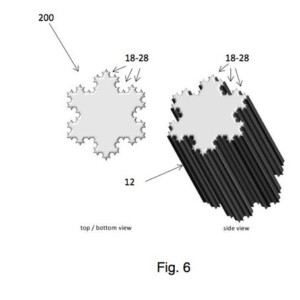Australia Acknowledges In/Non-Human Inventors
Australia Acknowledges In/Non-Human Inventors
The decision ”Thaler v. Commissioner of Patents, [2021] Fca 879” of the Federal Court of Australia acknowledges inventorship to a non-human inventor in the form of the software application – DABUS (Device for Autonomous Bootstrapping of Unified Sentience)
The question addressed by the Court was whether an AI, which is neither a physical nor a legal person, can be an inventor for the purposes of the Australian Patents Act.

Drawings from the patent application
The Act only allows said types of persons to apply for and be granted a patent. Thus, only physical and legal persons can own a patent. However, the Act does not define such limitation on the term “inventor,” which is not defined in the Act. In short, the Court reasoned as follows. The term “inventor” is an agent noun, i.e. a term describing someone/(something) who/(that) does something, namely invents. Since, in the present case, the invention for which protection is sought is the result of running an AI software on a computer the Court concluded that the AI software is the inventor for the purposes of the Australian Patents Act.
However, it becomes somewhat of a mental and logic challenge to derive an ownership to the AI-generated invention because the AI cannot own a potentially resulting patent. The Court considered themselves able to resolve this by arguing that the AI itself never owned the right to the invention. Instead, those rights belong to the owner and operator of the AI, Stephen Thaler, who derived the rights to the invention when he gained possession of it from the AI.
Consequently, the Court decision means that an AI program can be an inventor under the Australian Patent Act, and that the owner of the AI has the right to the inventions generated by the AI. However, the decision does not address the question of whether the current invention is patentable, i.e. meets the patentability criteria of the Act.
The decision is expected to be appealed by the Commissioner of Patents.
Corresponding cases have been rejected by for example the European Patent Office (EPO), the U.S. Patent and Trademark Office (USPTO) and the United Kingdom Intellectual Property Office (UKIPO) referring to that non-human inventors cannot be accepted under existing legal framework.
